|
Holy Saturday is one of my favorite days of the Liturgical Year. Since donning my first monastic-style altar server alb shortly after my First Communion, the celebration of the Sacred Paschal Triduum is not only the apex of the liturgical year, but mine as well. I always look forward to the day when Christ is in the tomb and we joyfully await the great Easter Vigil after sundown, with its elements that illuminate all of our senses.
Before we can glory in the Resurrection of the Redeemer, we must first wait in prayerful expectation while Christ is asleep in the tomb. The most poignant illustration of this anticipated celebration is from an “ancient homily on Holy Saturday,” written by an author forgotten by the centuries, and featured prominently in the Office of Readings of the Liturgy of the Hours on Holy Saturday: "Something strange is happening—there is a great silence on earth today, a great silence and stillness. The whole earth keeps silence because the King is asleep. The earth trembled and is still because God has fallen asleep in the flesh and he has raised up all who have slept ever since the world began. God has died in the flesh and hell trembles with fear. "He has gone to search for our first parent, as for a lost sheep. Greatly desiring to visit those who live in darkness and in the shadow of death, he has gone to free from sorrow the captives Adam and Eve, he who is both God and the son of Eve. The Lord approached them bearing the cross, the weapon that had won him the victory. At the sight of him Adam, the first man he had created, struck his breast in terror and cried out to everyone: “My Lord be with you all.” Christ answered him: "And with your spirit." He took him by the hand and raised him up, saying: "Awake, O sleeper, and rise from the dead, and Christ will give you light."" We wait in joyful anticipation for the chanting of “Lumen Christi--The Light of Christ” that pierces the darkness and the solemn intoning of the Exsultet, the great Easter Proclamation during the Easter Vigil. In the Exsultet, we join in praying in the midst of the newly lit paschal candle, “This is the night of which it is written: The night shall be as bright as day, dazzling is the night for me, and full of gladness. … May this flame be found still burning by the Morning Star: the one Morning Star who never sets, Christ your Son…” Together, we pray that Christ, the Beginning and the End, the Alpha and the Omega, may illumine our way through the darkness until we rejoice tonight in the splendor of the Vigil of Vigils, the holiest night of the Church year. Until then we wait, for something strange is happening. Alex R. Boucher is the Program & Operations Coordinator for the Catholic Apostolate Center. Follow Alex on Twitter at @AlexBoucher.
0 Comments
"The Crucifixion" Tintoretto, 1565
As the Christian world observes Friday of the Passion of the Lord, or Good Friday, the Catholic Apostolate Center invites you to pray and reflect on this most holy day. Intercessions (Taken from the Liturgy of the Hours) Today we lovingly remember the death of our Lord Jesus Christ, from which was born new life for the whole world. Let us turn to God the Father, and say: By the merits of your Son’s death, hear us, Lord. Give unity to your Church. Protect Francis, our Pope. Sanctify your people, both clergy and faithful, by your Spirit. Increase faith and understanding in those under instruction. Gather all Christians in unity. Lead the Jewish people to the fullness of redemption. Enlighten with your glory those who do not yet believe in Christ. Show the marks of your love in creation to those who deny them. Guide the minds and hearts of those who govern us. Console all who are troubles. Have pity on those who have died. As we enter into the Holy Triduum for the first time under the pastoral care of Pope Francis, we bring you the first Holy Thursday homily of Bl. John Paul II, given in the Basilica of St. John Lateran on April 12, 1979.
"The "hour" of Jesus has come. The hour of his passage from this world to the Father. The beginning of the Holy Triduum. The Easter mystery is again clothed, as every year, by its liturgical aspect, beginning with this Mass which—alone during the year—bears the name of "Coena Domini." Having loved his own who were in the world, "he loved them to the end" (John 13:1). The Last Supper is precisely the witness of this love with which Christ, the Lamb of God, loved us to the end. On that evening, the children of Israel, according to the old prescription, ate the lamb given by Moses on the eve of their exodus from slavery in Egypt. Jesus does the same with the disciples, faithful to the tradition which was only the "shadow of the good things to come" (Heb. 10:1), only the symbol of the New Covenant and of the new Law. What does it mean: "He loved them to the end"? It means: until that fulfillment which was to take place the following day, on Good Friday. On that day, God was to reveal how much he loved the world, and how, in that love, he had come to the extreme limit of giving, to the point, that is of "giving his only Son" (John 3:16). On that day, Christ showed that "greater love has no man than this, that a man lay down his life for his friends" (John 15:13). The love of the Father was revealed in the giving of the Son. In the giving through death. Holy Thursday, the day of the Last Supper, is in some sense the prologue of this giving, and the last preparation for it. And, in some sense, what was accomplished on that day goes beyond such a giving. It was just on Holy Thursday, during the Last Supper, that the meaning of: "He loved to the end", was revealed. Rightly, in fact, we believe that loving to the end means until death, until the last breath. The last Supper teaches us, however, that, for Jesus, "to the end" means beyond the last breath. Beyond death. This is, indeed, precisely the significance of the Eucharist. Death is not its end, but its beginning. The Eucharist begins with death, as St Paul teaches: "For as often as you eat this bread and drink the cup, you proclaim the Lord's death until he comes" (Cor. 11:26).The Eucharist is the fruit of this death. It recalls it constantly. It continually renews it. It always signifies it. It proclaims it. The death which has become the beginning of the new Coming: from the Resurrection to the Parousia, "until he comes”. The death which is the foundation of a new life. Loving "to the end" means therefore, for Christ, loving through death and beyond the barrier of death: loving as far as the extremes of the Eucharist! It was just in this manner that Jesus loved on that last evening. He loved his "own"—those who were then with him—and all those who were to inherit the mystery from them. — The words he pronounced over the bread, — the words he pronounced over the cup full of wine, — the words we repeat today with particular emotion, and always repeat when we celebrate the Eucharist, are precisely the revelation of this love through which, once and for all, for all time and until the end of the ages, he shared himself! Even before giving himself on the cross, as the "Lamb who takes away the sins of the world", he shared himself as food and drink: bread and wine, so that "they may have life, and have it abundantly" (Jn 10:10). It was thus that he "loved to the end.” Therefore, Jesus did not hesitate to kneel before the Apostles to wash their feet. When Simon Peter opposed it, he persuaded him to let him do so. It was, in fact, a particular need of the moment's greatness. This washing of the feet, this purification before the Communion in which they were henceforth to participate, was necessary. It was necessary. Christ himself felt the need to humble himself at the feet of his disciples: a humbling which tells us so much of him at the moment. From that time onwards, by sharing himself in the Eucharistic Communion, would he not continually lower himself to the level of so many human hearts? Would he not always serve them in this way? “Eucharist" means "thanksgiving.”"Eucharist" also means "service," the reaching out towards man: the serving of so many human hearts. "I have given you an example, that you also should do as I have done to you" (Jn 13:15). We cannot be dispensers of the Eucharist unless by serving! Now is the Last Supper. Christ prepares himself to depart through death, and through death itself prepares to remain. Thus, death has become the fulfillment of love: he loved us "to the end.” Would not the context of the Last Supper in itself be enough to give Jesus the "right" to say to us all: "This is my commandment, that you love one another as I have loved you" (Jn 15:12)?" Blessed John Paul II gave these words in his homily on Holy Thursday, 1979. "Let us never forget that authentic power is service." - Pope Francis
As we enter into the time of the Easter or Paschal Triduum, the holiest days of the liturgical year, we have an opportunity to reflect, remember, and relive the great redemptive love of Christ, not only in prayer, but also through how we live daily this love. Day after day since his election, Pope Francis has offered us witness of how to live this love in the simple acts of our everyday life. Because what he is doing is seemingly different from the past, his actions are considered dramatic. They are, however, the non-dramatic, counter-cultural, and normal actions of an apostolic person, one who lives the love of Christ concretely in service to others - as Jesus did when he washed the feet of the Apostles in the Upper Room. As bearers of the love of Christ to others, we join in their suffering, their pain, their rejection - as we unite with Jesus in his suffering and death on the Cross. Yet, we live in hope that the love of the Father which conquered sin and death and raised Jesus up on Easter morning gives us hope to continue our sharing of the love of Christ to all, no matter what the cost. Please know that we are keeping you in prayer during this special time. If you have any special intentions that you would like us to pray for during the Holy Triduum, please send them to us (via email, Facebook or Twitter) and they will be remembered. The entire Catholic Apostolate Center team wishes you a prayerful Paschal Triduum and a blessed Easter season! May the charity of Christ urge you on! Fr. Frank S. Donio, S.A.C., D. Min, Director of the Catholic Apostolate Center wrote this piece for the Holy Week edition of the Catholic Apostolate Center Newsletter. Contact us to sign up to receive our news letter! The Paschal what? Ever wonder what the Triduum is and when and how we celebrate it? Here are a few great resources to check out! 1. 18 Questions and Answers on the Paschal Triduum: The United States Conference of Catholic Bishops has provided an excellent resource for us seeking a greater understanding of the importance of the Pashcal Triduum, which takes place this week. Questions range from simply, "When does the Triduum begin and end?" to inquires on Good Friday devotionals and liturgical norms during this time. With clear and direct responses to each of the proposed questions that commonly arise during Holy Week, it's a great resource no matter the depth of your theological background. 2. Holy Week reflection: A brief reflection on the meaning of Holy Week by Fr. Thomas Roscia, C.S.B of Salt and Light Ministries. 3. Holy Week in Two Minutes: A resource of Busted Halo ministries, this "Holy Week in 2 Minutes" clip is a brief explanation of the importance of the events of this week in the life of the Catholic Church. An excellent resource that's ideal for sharing via social media such as Facebook and Twitter, it's worth 2 minutes of your time! Resources were gathered by David Burkey, Communications Coordinator for the Catholic Apostolate Center I am scared of Lent. There: I said it. This cradle Catholic, with plenty of Lents under her belt, is scared of one of the most sacred liturgical seasons in the Church.
I’m not saying I don’t love it. I do. I loved when my favorite priest buried the “Hallelujah,” and then emptied our Church of decoration, only adding more as we got further into Lent and into spring. I love (well, love/hate) fasting, and the way my mind is automatically drawn toward my dependence on God and solidarity with others. And my favorite color is purple. So, yeah, Lent is my season. But I’m scared of it. Truth be told, I feel like I’m bad at Lent – never repentant enough, never serious enough, never sacrificing or doing enough. When I was little, I made charts to track my progress through the 40 days free of candy, or Facebook, or whatever I gave up. When I got older, I got smarter and started adding to my Lenten routine. More Scripture, more prayer, more almsgiving. Usually I do okay striking a balance between sacrificing for God and building toward God, but this year…all bets are off. This year, away from home, family, and friends, I’ve been feeling so restless. Isn’t this season a time to rest in God, and prepare our hearts for that life-changing Resurrection? Part of me feels like, “God, haven’t I given up enough? I’ve followed you into this desert that is rural Kentucky!” But part of me (and I’m sure this is the part the Holy Spirit is dealing with) knows there is always more. We can always remove more that stands in our way to the fullness of God. Yet, as Lent draws to an end, I still feel like I am figuring out what I’m doing. My housemates have all dutifully prayed; they have gracefully denied sweets and coffee and swear words. All I’ve managed to do is plod along through Merton’s Seven Storey Mountain, because hey – third time’s a charm, right? In the meantime, I thumb through my notebook still rewriting different versions of my Lenten plan. And there lies my problem; I am still trying to plan Lent. I have turned it into some Christian New Year’s Resolutions/Get-Right Plan for Lent 2013. If I “do” A, B, and C, then the Resurrection will surely come! If I “do” Lent with enough sacrifice, enough Bible study, enough whatever, then I’m sure to feel the Resurrection like never before. But maybe that’s not the way to do it. The Rev. William Bradley, in a sermon given on the first Sunday of Lent, said, “The difference between us and Jesus is that he doesn’t run from…insecurity, rather he embraces, inhabits it as part of his life with God. Rather than trying to fill it with people, things, drugs, and busyness, he sits with his emptiness to see if God will show up.” I haven’t quite figured out what I’m “doing” this Lenten season, and maybe that’s okay. Maybe I need to simply take my restlessness to God in prayer and sit with it, until I’m no longer with the restlessness but with the peace and grace that is God. Only once I can settle into being this Lent, can I start to actually do the life-giving practices of this holy season and rejoice in His resurrection that lies ahead. Katherine Biegner recently graduated from Assumption College and is currently serving as a tutor and mentor in the Christian Appalachian Project in rural Kentucky. St. Joseph is known as the Shadow of the Eternal Father, the Perpetual Adorer, the Patron of the Universal Church, the Patron of the Suffering and Dying, the True Foster Father of Jesus Christ, and Most Chaste Spouse of the Ever-Virgin Mary. He shows how a person must rely on the Father’s providence, trust the boldness of the Holy Spirit, and cherish the Incarnate Jesus, all while staying close to the Virgin Mary. St. Joseph is a model of faith and in a unique way he upholds the dignity of all vocations.
Joseph survives and thrives as a person of faith by abandoning his life and family completely to God. The Devil, Herod, and everyday difficulties, like not being able to find a place for his wife to give birth, threaten Joseph’s most precise gifts. A faithful person humbly resigns what they care about most to the Giver of All Gifts only to receive back what is best blessed and renewed. Joseph protects his family through surrendering them to God. How wonderful St. Joseph’s prayers must have been. The way he took his fears and insecurities to God to receive true strength must have been so beautiful. There are many ways that we know that St. Joseph’s faith was profound. The Virgin Mary knows for sure that she has never been with a man, but Joseph does not. St. Joseph trusted in the words of an angel in a dream. The angel said, “Joseph, son of David, do not be afraid to take Mary home as your wife, because what is conceived in her is from the Holy Spirit” (Mt. 1:20). Catholic theology of the Trinity had not been developed yet leaving Joseph not knowing with any sort of clarity who this “Holy Spirit” was that had impregnated his fiancée. St. Joseph demonstrates that his faith is not the kind that limits God by being attached to personal plans and expectations, but is one that allows God to act boldly. His faith is fulfilled by being lived out; he did take Mary as his bride, he did raise Jesus as his son, he did go wherever the Lord commanded him. Joseph fled to Egypt when Jesus’ life was being threatened and he returned home when he was told, doing everything in accordance with God’s will and timing. The obedient Joseph, as the Perpetual Adorer of the Christ-child can also help us grow in intimacy with Christ. Have we ever realized that the baby Jesus was most likely birthed into the callused hands of his carpenter foster-father? St. Joseph knew Jesus in a radically unique and intimate way. Joseph was able to adore the Eucharist while it was still breathing. We can relate to Joseph in the struggles that he faced and the fact that he was not spared from original sin. He was broken, flawed, sinful, fearful, and even being tempted. Joseph, as most chaste spouse, did not reduce Mary to an object of pleasure but he honored her as a whole person. We can imagine that Joseph embraced his call to chastity not begrudgingly but with great joy. Their intimacy honors the glory of creation by neither of them trying to dominate or manipulate the other for personal gain. How immaculate their interactions must have been! St. Joseph and Mary model for us a pure intimacy rooted in trust, commitment, and the will of God. With these considerations in mind we see St. Joseph as an inspiration for all people because he was called to marriage, parenthood, and celibacy. Whether we are called to marriage, religious life, priesthood, or the single-life we should entrust ourselves to St. Joseph and know that he understands the burdens that we carry. As a good father he will teach us to trust God completely and to allow the Holy Spirit to move in dramatic and unexpected ways. With Joseph as a model of faith we will honor the dignity of all people, love Mary, and intimately adore the Incarnate Christ. Daniel Hoover works at St. Mary’s Parish in the Diocese of Wilminigton, DE as a Lay Ecclesial Minister. A Jesuit with the name Francis! No one saw it coming. For weeks now we have heard whispers of Cardinal Scola or Cardinal Turkson, while here in the States we have heard arguments for the candidacy of Cardinal Dolan or Cardinal O’Malley. Yet, no one thought a Jesuit would be next, even more so a Jesuit choosing the name Francis! As I watched the live stream on the phone with a good friend, he shared the following short phrase: “‘Francis, rebuild my church’ - how appropriate for this time in our Church.”
Bonaventure in his work Life of Francis wrote the following passage that is worth revisiting this day, as we reflect on the gaudium magnum which we received yesterday: “One day when Francis went out to meditate in the fields he was passing by the church of San Damiano which was threatening to collapse because of extreme age. Inspired by the Spirit, he went inside to pray. Kneeling before an image of the Crucified, he was filled with great fervor and consolation as he prayed. While his tear-filled eyes were gazing at the Lord's cross, he heard with his bodily ears a voice coming from the cross, telling him three times: 'Francis, go and repair my house which, as you see, is falling into ruin.' Trembling with fear, Francis was amazed at the sound of this astonishing voice, since he was alone in the church; and as he received in his heart the power of the divine words, he fell into a state of ecstasy. Returning finally to his senses, he prepared to put his whole heart into obeying the command he had received. He began zealously to repair the church materially, although the principle intention of the words referred to that Church which Christ purchased with his own blood, as the Holy Spirit afterward made him realize [...]” Although the event described by St. Bonaventure took place in 1204, this voice from the Cross fills our Church yet again, beckoning us to build up Christ’s Body and bring about God’s Kingdom through love. Similar to St. Francis’ initial reaction upon hearing God’s call, many of us are amazed at the news of who has been chosen as the next successor to St. Peter. But let us also follow in St. Francis’ footsteps by laboring zealously to repair the Church – both local and universal – with the guidance of Pope Francis who has already witnessed to us great humility, compassion, and strength. There is much more to say and to learn about our new Holy Father, but we cannot provide everything here. We invite you to visit our Pope Francis Portal for up-to-date information, videos, and resources on the newly elected Roman Pontiff, the humble servant of the servants of God – servus servorum dei. Pam Tremblay is the Blog Editor for the Catholic Apostolate Center. An excerpt from Cardinal Sodano’s homily, given this morning during the Mass for the Election of a Roman Pontiff (full text): Brothers and sisters in Christ today’s Gospel takes us back to the Last Supper, when the Lord said to his Apostles: “This is my commandment: that you love one another as I have loved you” (John 15:12). The text is linked to the first reading from the Messiah’s actions in the first reading from the prophet Isaiah, reminding us that the fundamental attitude of the Pastors of the Church is love. It is this love that urges us to offer our own lives for our brothers and sisters. Jesus himself tells us: “There is no greater love than to lay down one’s life for one’s friends” (John 15:12). The basic attitude of every Shepherd is therefore to lay down one’s life for his sheep (John 10:15). This also applies to the Successor of Peter, Pastor of the Universal Church. As high and universal the pastoral office, so much greater must be the charity of the Shepherd. In the heart of every Successor of Peter, the words spoken one day by the Divine Master to the humble fisherman of Galilee have resounded: “Diligis me plus his? Pasce agnos meos… pasce oves meas”; “Do you love me more than these? Feed my lambs… feed my sheep!” (John 21:15-17) In the wake of this service of love toward the Church and towards all of humanity, the last popes have been builders of so many good initiatives for people and for the international community, tirelessly promoting justice and peace. Let us pray that the future Pope may continue this unceasing work on the world level. Moreover, this service of charity is part of the intimate nature of the Church. Pope Benedict XVI reminded us of this fact when he said: “The service of charity is also a constitutive element of the Church’s mission and an indispensable expression of her very being; (Apostolic Letter in the form of a Motu Proprio Intima Ecclesiae natura, November 11, 2012, introduction; cf. Deus caritas est, n. 25). It is a mission of charity that is proper to the Church, and in a particular way is proper to the Church of Rome, that in the beautiful expression of St. Ignatius of Antioch, is the Church that “presides in charity” “praesidet caritati” (cf. Ad Romanos (preface).; Lumen Gentium, n. 13). My brothers, let us pray that the Lord will grant us a Pontiff who will embrace this noble mission with a generous heart. We ask this of the Lord, through the intercession of Mary most holy, Queen of the Apostles and of all the Martyrs and Saints, who through the course of history, made this Church of Rome glorious through the ages. Amen.
We are constantly taking in loads of information. Staff meetings, e-mails, classes, articles, blogs, ect ect. In one day I can easily find myself dealing with multiple tasks, countless problems, and in the middle of reading 3 or 4 different books. The question becomes not what was accomplished, but what was actually taken away? What, after a week of classes, a day of work, or time spent at a conference, was the take away?
Today marks the beginning of the second annual Mid-Atlantic Congress in which pastoral leaders of our Church on the East Coast gather in Baltimore. As was shared in Tuesday’s blog, it is a time of sharing knowledge, gathering tools, and forming relationships. Spending our days in prayer, breakout sessions and collaborative conversations, one is over loaded with wonderful information and useful tools. After three days of being laden with information and experiences the question becomes, “what is the take away?” I share with you my “take aways” from last year’s congress. These 6 pieces of wisdom have stuck with me throughout the year and have helped to strengthen both my faith and my work as an Apostle in the Church. Take Away 1: “When I don’t have hours I take minutes” ~Elizabeth Ann Seton. In the business of our lives it is hard to find the hours of contemplative prayer we would like and need. We must be reminded that when we can’t find hours we should not beat ourselves up, but rather take the minutes we do have to enter into prayer and conversation with God. Take Away 2: “Remember that you are called and chosen, loved and blessed. That you are the one that will bring others to Christ” ~Most Rev. Gerald Kicanas, Bishop of Tucson AZ. The Bishop then went on to say, “I have an ecstasy and terror of having been chosen in Baptism.” All of us in our Baptism were called and chosen to be apostles of Christ and we must remember that in being Apostles we are love and blessed, even in the midst of our own ecstasy and terror. Take Away 3: “The one handed Gospel” The Director of CRS, Dr. Carolyn Woo, shared Blessed Teresa of Calcutta’s “one handed Gospel”, in which Mother Teresa explained that the whole Gospel can be counted on five fingers, “You-Did-It-To-Me.” Every action that we take we do it to Christ, so let our actions be ones of compassion, care and love. Take Away 4: “Have a spirituality of Resurrection; love beats all- Joy over hate!” Fr. James Martin, SJ. As we have shared with you many times in our blog posts, Fr. Martin again reiterates that we are a people who “rejoice in hope” and that “joy, humor, and laughter feed hope.” In the midst of our struggles and our pains, we are reminded that we are called to be a people of the Resurrection! Take Away 5: Always come back to the Eucharist! Msrg Kevin Irwin shared that, “the Eucharist says you are accepted and you are not alone. It is what gives us hope and perspective.” Marty Haugen explained that “the Eucharist is radically welcome, radically relational, and radically transformative.” We must remember the gift the Eucharist is to us and the strength it provides us to do the work of God. Take Away 6: Love the Church! Paul Henderson, director of USCCB publishing reminded us that we are to “love the church…love knows no fear.” Most Rev. Gerald Kicanas, Bishop of Tucson AZ, also spoke in asking us to “strive to love the Church; she is a sinful, graced reality.” In the midst of trying times for our Church, let us never forget to love her and be grateful for all that she has done in showing us what is true and real. In the midst of this day, you are bombarded with information and details, my hope is that you are able to take away one of these take aways! I ask also that you keep in prayer all those who are participating in the Mid-Atlantic congress this weekend and for our Church at large, that through collaboration and sharing we might be able to live the Pallottine spirituality of reviving faith, rekindling charity and forming apostles. Pam Tremblay is the Blog Editor for the Catholic Apostolate Center. It is once again that time of year for pastoral leaders to be making their way to the Mid-Atlantic Congress (MAC) in Baltimore. Registration fees have been paid, rooms have been booked, and deals on parking spaces have been found. The preparations are well under way for another Congress, and where does my mind go? To the Council of Elrond in Rivendell. That’s right, I am about to compare a gathering of pastoral leaders to The Lord of the Rings. Although the MAC at first glance may not appear to be as epic as Tolkien’s depiction of the Council of Elrond, upon further examination the MAC holds many epic features to it- most notably that of companionship.
The Christian life as we all know is filled with struggles, sorrows, growth, and joy. At times we often feel as Frodo does, torn between the known and the unknown. We may desire to remain in our present scenario although feeling nudged to embrace a challenge that seems impossible. Tolkien portrays this tension when he writes, “An overwhelming longing to rest and remain at peace by Bilbo’s side in Rivendell filled all his heart. At last with an effort he spoke, and wondered to hear his own words, as if some other will was using his small voice. ‘I will take the Ring,’ he said, ‘though I do not know the way.”’ (The Lord of the Rings, The Fellowship of the Rings, 303) As a young adult working in the Catholic Church, I often find myself saying this very line: “I will take the [insert present challenge] though I do not know the way.” As Frodo and myself have both found, this insecurity is the prime opportunity in which to reach out for another and to experience the value and blessings of companionship. Upon attending the MAC last year, I was amazed with the incredible spirit of companionship that enlivened the atmosphere of this conference. As I walked through the halls of the conference center, I observed reunions between old friends at every turn and new friendships forged as experiences and stories were shared. Ideas were exchanged on how to approach various problems at the parish, contact information shared for future questions, and the knowledge that you were not alone in your struggles or in your joys brought reassurance. As for me, I was blessed with the companionship of one of my Echo Faith Formation community members. We would scour through the program to find the most interesting workshops, often splitting up so that we could gather even more information to bring back to our collective reservoir of knowledge. This initial companionship gave us the motivation and encouragement to go off on our own, meet new members of the Body of Christ, and return together strengthened in our own relationship. Throughout this past year, we have often thought back to the MAC, appreciating the connections we made, the friendships we began, and the opportunities that we were blessed to experience. As the Council of Elrond provides an opportunity for Frodo and the other characters to seek direction and as Rivendell bestows a haven of rest and peace, the MAC grants the time and space to discuss the Church in the world today and a place in which to rest and gain strength to continue the journey. As Frodo set out with eight companions to complete his task, one leaves the MAC with several more companions than one started with. Although there will be bumps along the way, the memory of the joy and the Spirit shared at this unique gathering strengthens one during difficult times (as an added benefit, it also provides a great opportunity to network!). St. Paul captures the spirit of the MAC when he writes, “so that I may come to you with joy by the will of God and be refreshed together with you.” (Romans 15:32) Regardless of your ability to participate in the MAC this year, I pray that as diverse members of the same Body of Christ we may come together with joy and be refreshed so that we may be sent out to continue our own epic story as apostles of Jesus Christ. Amy Winkler serves as an Echo Faith Formation Apprentice in the Diocese of Camden, NJ |
Details
Archives
July 2024
Categories
All
|
About |
Media |
© COPYRIGHT 2024 | ALL RIGHTS RESERVED

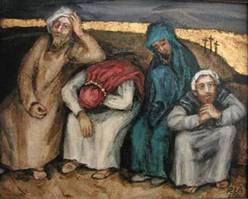
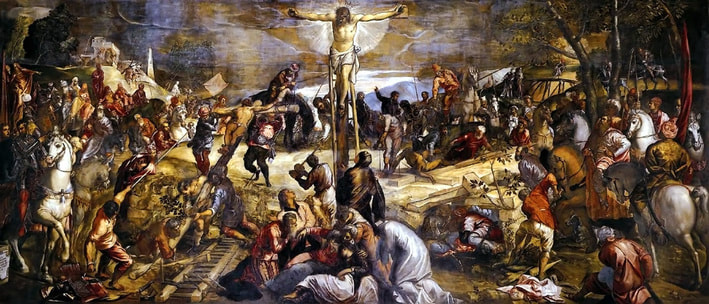
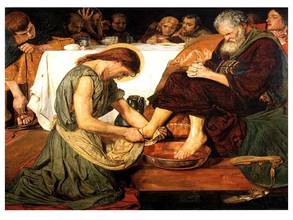
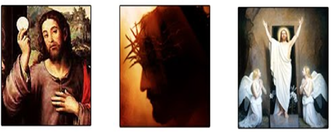
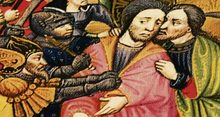
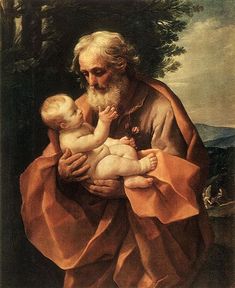
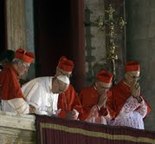
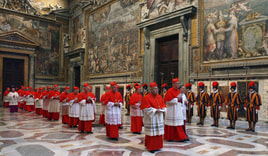
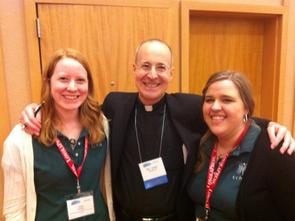
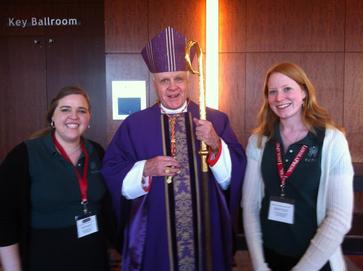
 RSS Feed
RSS Feed